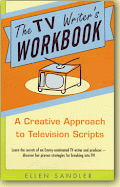





Laura Rennert is a senior literary agent with
Andrea Brown Literary Agency and
a published author of children’s fiction. Following
a distinguished career in academia, she joined the Brown agency in 1988, where she currently
specializes in young adult fiction. Dr. Rennert’s academic accomplishments, teaching and writing experience imbue her with a unique ability to identify and develop new emerging talent. It also gives her the professional credentials to work with established authors like
Ellen Hopkins. Her expertise runs from adult fiction: literary fiction, women‘s fiction, mysteries and thrillers (particularly those with a female perspective or angle) to memoir, and narrative and popular nonfiction.
Dr. Rennert is at the top of her game. Some successful agents tend to limit their search for new clients to known quantities. Laura Rennert represents award-winning and best selling authors, National Book Award Finalists, as well as first-time authors. Some of her more noteworthy deals exceeding a half a million dollars were brokered with Random House and Simon & Schuster. She also logged six-figure YA deals with Razorbill/Penguin, Knopf, Feiwel & Friends, Margaret McElderry/S&S, Scholastic, and Harper, plus a film deal with Nickelodeon/Paramount.
Middle-grade, young adult, and crossover books remain Ms. Rnnert’s specialty. In the MG/YA market, she's seeking contemporary fiction with real emotional power. Examples would be urban fantasy, paranormal with a literary bent, gothic or neo-gothic novels (going back to her 19th Century Brit Lit roots), mysteries, suspense, and thrillers, and multi-cultural fiction.
She likes characters with an insider-outsider perspective. Dr. Rennert has spent time abroad and has an affinity for books that explore different cultures or worlds to which the young reader wouldn't otherwise have access. She values books that make us see the ordinary in new ways, especially works that are ambitious in intellectual, emotional, or narrative terms, and books that make her laugh or cry. Across all categories her unique talent lies in identifying books with "literary voice, and commercial conception."
Dr. Rennert, published the picture book,
BUYING, TRAINING, AND CARING FOR YOUR DINOSAUR in the Fall of 2009, as well as a highly illustrated book for young readers inspired by her daughter,
EMMA, THE EXTRA-ORDINARY PRINCESS, coming in Spring 2011.
She speaks at writer's conferences throughout the country and abroad. Dr. Rennert was awarded her
Ph.D. in English literature by the
University of Virginia. She has worked as a freelance editor in the
United States and
Japan, and has nine years of experience teaching on the faculty in the English Departments of the University of Virginia,
Osaka University of Foreign Studies, and
Santa Clara University. She has published articles in various scholarly journals in the United States and internationally.
Writer's Digest in 2004 named Andrea Brown Literary Agency one of the top twenty-five literary agencies for developing new writers. The Andrea Brown Literary Agency Inc. has been in business since 1981.
Her notable clients includes:Ellen Hopkins,
Catherine Ryan Hyde
Jay Asher
Kathleen Duey
Maggie Stieffvater,
Christina Meldrum,
Jeff Stone,
Ying Chang Compestine,
Robin Brande,
Andrew Smith,
Kimberly Derting
E.I. What advice do you have for debut literary fiction writers looking to break into this tough category? Is it just about the writing, or are there other factors you often see overlooked?
Laura Rennert: My advice to debut fiction writers is work on craft; educate yourself regarding the market (especially the category in which you are writing); present yourself professionally and personably; develop visibility even before publication; and stay passionate about writing and your own work. So a word about each of these things.
Hone your craft. Seek out opportunities to learn from successful authors and from editors and agents, who are strong in your category and who work with writers you love. Form a critique group or find writing partners who push you to be better, who will tell it to you straight, and who don't let you get away with anything.
Focus on the fundamentals of strong story-telling. What I’m looking for in fiction is works with a fresh voice, original perspective, complex characters, a strong narrative structure; and real emotional power. Some examples of my authors who nail these criteria are Ellen Hopkins, Maggie Stiefvater, Jay Asher, Christina Meldrum, and Kathleen Duey. The good news is, it begins and ends with what is on the page. This is the part you can control. Write the best books you can – the kind of books you want to read.
It may seem like commonsense but I’ll say it anyway: make sure the work you put out there is your best. In other words, don't send your work to agents and editors prematurely. I have a checklist for fiction on my website, www.laurajoyrennert.com (see the "for writers" page) that offers some guidelines to help you decide if your work is ready.
Know the market. As a debut author, if you can situate your work in terms of other successful novels in your category, you give us a useful understanding of where your work fits in the market, and you demonstrate that you've educated yourself and done your homework. Telling us who your audience is, why your work will appeal to that audience, and how you can reach a readership will definitely capture agents' and editors' attention.
Build a strong online presence through author websites, blogs, and use of social networking. The good news is that internet presents an incredible opportunity for writers to connect with their audience and to publicize their books at minimal cost, apart from the time and energy commitment. If you combine this kind of author visibility with irresistible, powerful, well-crafted writing, you’ll be unstoppable.
E.I. Are you a huge believer that good books will always sell even in a bad economic climate as it is? Do people stop buying books except for the authors who pioneered the genre and were bestsellers from the beginning?
Laura Rennert: I believe that even in a bad economic climate, maybe especially in a bad economy, people have an appetite for good books! I don't think our desire for great stories is going away, regardless of the changing face of publishing. However, as technology evolves and the publishing landscape shifts, there may be more and different models for delivering content. Of course, with new ebook readers coming on the market and the ability to read ebooks on mobile phones and other devices, this is already happening.
As publishing suffers these growing pains, the most important thing you can do as a newer writer is work on building your brand. It's true that established authors who already are existing bestsellers have an advantage in this regard, but I have to believe that authors who write strong books and find creative and smart ways to connect with their readers will succeed.
Since you don’t necessarily know whomever and however your next book will be published, your most important move as an author is to establish the broadest, strongest, direct connection with your readers. Facebook, Twitter, contests, and blogs are your marketing tools. If you use them to build a direct connection to your readers, you’ll be in a good position, no matter what comes, because you can take your email list, your Twitter list, your Facebook list with you.
Because traditional publishers are generally doing less than ever before to promote authors, the job of publicizing one’s book typically falls to the author. A web presence is especially important in this down fiction market because it’s frequently author-generated visibility and exposure that are leading to publishing success. It’s crucial for middle-grade and young adult authors, because their readers are online and so computer savvy, and it’s even becoming a requirement for other categories of children's books, as well. As an author myself, I am using my website and social media, as well as book signings, books festivals, and school visits, to promote my own picture book, BUYING, TRAINING, AND CARING FOR YOUR DINOSAUR (Oct. 2009, Knopf), illustrated by Marc Brown.
My husband, thriller writer
Barry Eisler, likes to analogize what’s happening in publishing to what happened in the music industry with the advent of MTV. All of a sudden, there was pressure on recording artists and musicians to be beautiful as well as talented. So, in the current publishing climate, there’s pressure on the authors to be savvy marketers and promoters of their own books, as well as to craft amazing stories. This may not be a desirable or fair change. After all, authors got into the business of writing because of their talent for writing, not their PR ability. But, regardless, the ability to market one’s own books is increasingly a requirement for publishing success.
In this brave new world, authors have to think of their books as their own business, the publisher as their partners, and have to develop their own marketing strategies for connecting with readers and building a brand as authors.
Photo of Laura Rennert by Janelle McCuen.
To learn more about Laura Rennert please visit the following websites bellow.
Laura Rennert
agent’s websiteLaura Rennert
author’s website





























































.png)
